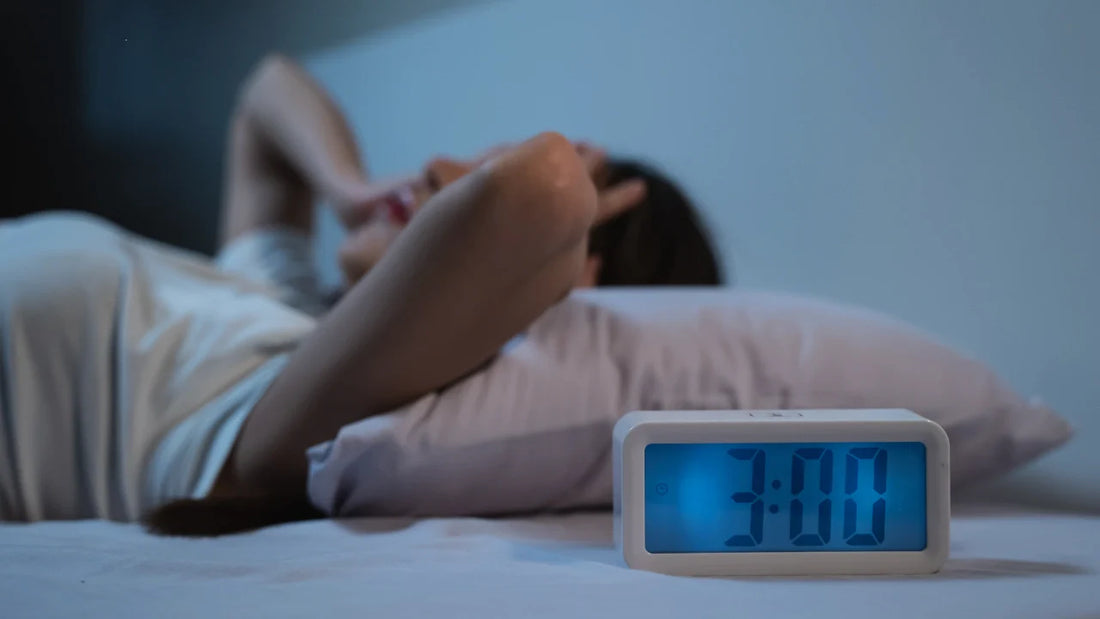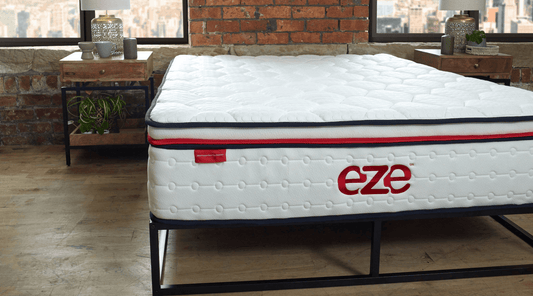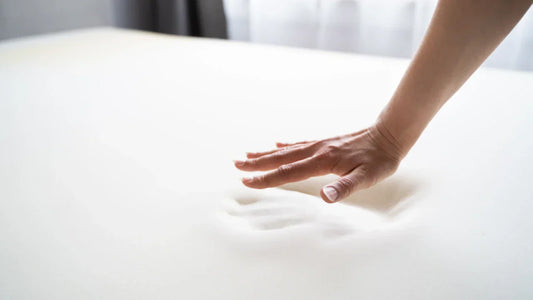We all know how we feel after a restless night full of tossing around.
Moody and irritated. But there’s more than bad mood to neglecting sleep.Having low-quality sleep leads to serious effects on our health - mental and physical. From impaired decision making to weight gain, a plethora of negatives stems from poor sleep.Sleep is rest for the body and a workout for the mind
Read on to find out if any of the negative aspects of your life could be caused by your sleeping habits and how you can improve your sleep TONIGHT.
It’s difficult to focus and remember new information
The pathways in your brain that help you focus, process information, and learn new things are formed during sleep.
If your sleep is suboptimal this can result in difficulties with staying focused and paying attention for longer periods.
Next, this could have a profound effect on your alertness and reaction time, which are both very important, especially if you’re driving.
The final level of attention impediment caused by low-quality sleep is microsleeps. This is when you fall asleep for a few seconds without actually wanting to.
Microsleeps mostly happen while doing something repetitive and/or sedentary, such as working at your desk, driving or reading.
Worst cases of microsleeps can last up to several minutes.
It takes a long time to recover from an illness
Cytokines are substances your body produces in order to fight infection, bacteria and viruses. This production happens while you are sleeping.
Poor sleep prevents your body from fully utilizing its’ defence mechanisms which leads to longer recovery times when you end up being ill.
In some cases, this might result in developing a chronic illness. In very simplified terms, a chronic illness is developed when your body is not able to fully fight off a disease, so it learns to live with it instead.
Gaining weight easily and experiencing sugar cravings
Our sleep controls two hormones responsible for hunger and fullness, leptin and ghrelin.
Leptin lets your brain know you don’t need to eat more when you’ve had enough food. Ghrelin lets your brain know it’s time to eat when you’re hungry.
Without enough quality sleep, your brain reduces the production of leptin and increases ghrelin.
This explains why people tend to crave a sugary/fatty snack later in the evenings and why it’s easier to have a healthy breakfast than a healthy dinner.
Poor sleep also makes your body release more insulin after you eat. High insulin levels cause your body to store more energy as body fat and can lead to developing diabetes down the line.
How to improve your sleep this very night
We know, sleeping longer is not always an option. Days are busy and there’s just too many things to get done for most of us to get 9 hours a night.
But sleeping more isn’t the only sleep improvement you can make. Improving the quality of your sleep is sometimes more important than just getting more sleep.
Here is a list of things you can try tonight and see how you feel tomorrow morning. Of course, making all of these changes at once is probably not going to work out.
Feel free to make the one you find the easiest and build from there. Remember - every journey starts with the first step.
Make It Dark
The number one tip we’d give anyone is to invest in some blackout curtains. While sleeping, your room should be pitch black.
This can be problematic with street lights shining outside all night long. Moreover, when the sun comes up in the morning it’s very likely you’ll get sunshine in your room.
Blackout curtains will help you keep your bedroom dark, making your brain produce more melatonin, the sleep hormone. You’ll be able to get more REM sleep during the night as well.
This will improve how much your brain recovers during your sleep.
Get The Right Mattress For You
What you sleep on matters - a lot. And your mattress being old is not the only problem.
If you’re waking up feeling stiff and/or achy, chances are your mattress is not right for you. Yes, it might be old, but it might also be too soft or too firm.
For example, if you sleep on your side and your mattress is too firm, this can result in lower back pain as you hips aren’t able to sink into the mattress.
However, if you sleep on your stomach sinking is the last thing you want as that would result in overarching of your spine.
We have developed four mattresses, all designed according to which position you sleep in. Take the guesswork out of buying a mattress. With 0% finance options and a 10 year guarantee.
Hit The Bed Around 10
I know, we said no “just sleep more” advice. However, that’s not what we’re suggesting here.
If you can’t afford sleeping more, just try to hit the bed sooner and wake up sooner. You might find that movie even better if you watch it tomorrow before work.
There is a magical period between 9 pm and midnight in which your sleep is the most rejuvenating.
If you want to feel energized during the day, without having to sleep more, we’d suggest taking advantage of this three hour period as much as you can.
Consistency
One of the most important things when it comes to sleep is consistency.
Going to bed and waking up at similar times will help your body know when to start producing your sleepy hormones as well as the awake ones. Not only will this improve the quality of your sleep, but will also make falling asleep and waking up easier.
No more tossing around in bed for 20 minutes before falling asleep and no more snoozing.
Blue Light
You probably heard this one already. Screens of electronic devices emit blue light, which acts on your brain in a similar way as UV light coming from the sun.
You are basically fooling your brain to think these are sun rays and, therefore, that it’s actually the day and not the night.
In response, your brain limits the production of your sleepy hormones making it harder for you to wind down and get tired.
You might be one of the people who are not influenced by blue light in this particular way. Meaning, you might not have a problem with falling asleep after looking at screens. Unfortunately, this doesn’t change the fact that the quality of your sleep for the first ~3 hours will suffer significantly.
Your brain still reacts to blue light, even if you can fall asleep easily, you will not enter the stage of deep sleep before their effects wear off completely.
Obviously, there are many more things you can do to improve your sleep, but we consider this to be the foundation.
Try to do one change at a time and see how better you’ll feel during the days.
Good sleep should come first, even before good diet and exercise. Your body can’t go without sleep, so make sure the sleep you get is as good as it can be.









